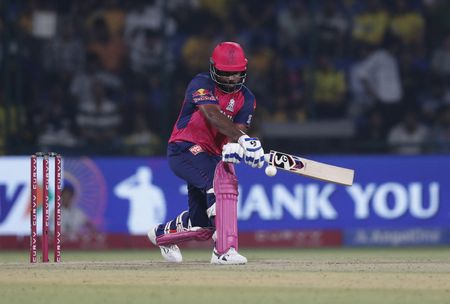By Nidhi Verma and Sethuraman N R
NEW DELHI (Reuters) – State-run Hindustan Petroleum (HPCL) plans to increase the capacity of its Vizag oil refinery in southern India by as much as 20% to meet growing local fuel demand, its chairman Rajneesh Narang said.
India is raising its crude processing capacity as the world’s third-largest oil importer and consumer wants to be a major global refining hub while its fuel demand is expected to continue growing for the next decade.
HPCL recently expanded the capacity of the Vizag refinery to 300,000 barrels per day and is looking for a further increase.
“We are exploring raising the (annual) capacity by 2-3 million (metric) tons (40,000-60,000 bpd). We have to take a board approval for this,” Narang told Reuters at the India Energy Week conference, without providing the estimated cost or timeframe.
HPCL will soon start operations at the Vizag refinery’s new secondary units, including a 3.5 million-ton-per-year (tpy) residue upgradation unit to boost its distillate yield by 10% and improve its gross refining margin (GRM) by $3 per barrel. It will also bring online a 2.6 million tpy diesel hydro desulphuriser.
India’s fuel demand is expected to rise alongside the expansion of its economy, though motorists are being drawn to electric vehicles and industries are switching to renewables from diesel-generated electricity to cut their carbon footprints.
To future-proof its plants, HPCL is also building a petrochemical plant at its 180,000 bpd Barmer refinery in the desert state of Rajasthan.
The refinery is India’s first plant to have a highest petrochemical intensity – the percentage of crude oil that is converted into chemicals – of 26%.
While crude processing at the Barmer refinery will begin in June-July, the petrochemical project will start operation by December, Narang said.
The company plans to operate the Rajasthan refinery through spot oil purchases and would sign annual crude purchase deals for the plant from next year after the units stabilise, he added.
HPCL also operates a 190,000 bpd Mumbai refinery in western India.
The company imports about 21 million tons of crude annually, with about 8 million to 9 million tons procured from the spot markets, Narang said.
To cut its crude import cost, the refiner set up a crude trading desk last year that negotiates with oil sellers for better terms instead of floating tenders for spot purchases, he added.
(1 metric ton = 7.3 barrels of crude)
(Reporting by Nidhi Verma; Editing by Florence Tan and Jamie Freed)







